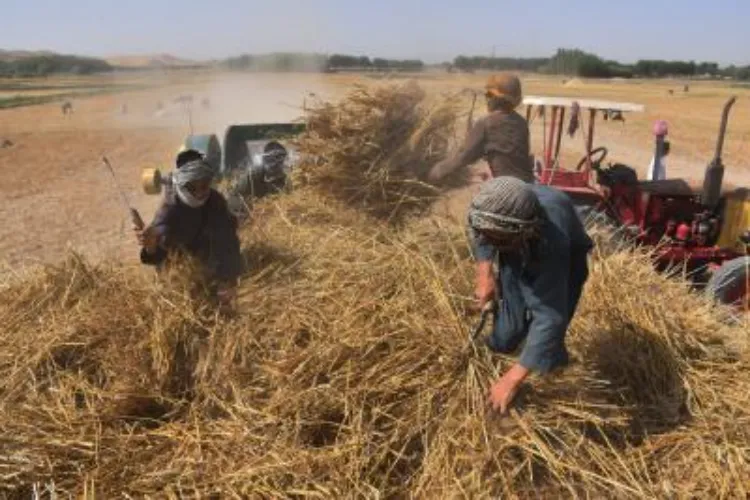Rome
A new $80 million grant from the US is an important step-forward in the work of the UN's Food and Agriculture Organization (FAO) to support farmers and agriculture in Afghanistan as they struggle to produce food, build resilience and achieve food security in the face of continuing drought and deep economic crisis.
Together, these activities will boost local food production, generate jobs and income and help revive struggling local rural markets."Agriculture is the backbone of Afghanistan's economy, people's livelihoods, food production and food security. Almost half the total population face acute food insecurity -- hunger on a daily basis -- reaching over 70 per cent in many rural areas. USAID's generous support will help Afghanistan's farmers to begin seeing beyond the current crisis and start laying foundations for future recovery," said Richard Trenchard, FAO Representative in Afghanistan.
FAO is implementing an unprecedented humanitarian programme to protect rural livelihoods amid continuing drought and extreme economic crisis, and will support more than 9 million people across all 34 provinces this year.The fresh funding from USAID will be implemented in eight provinces around the country -- Nimroz, Ghor, Daykundi, Jawzjan, Badakhstan, Nuristan, Paktika and Prawan -- all of which are considered to be facing acute food insecurity according to the latest IPC assessment.
The core outcomes will be increased production and processing of nutritious food, improved economic resilience of smallholder farmers to shocks through rural diversification of income opportunities, enhanced availability of quality seeds and other farm inputs along with extension services, and an interactive information approach to help local people improve their crop harvesting and food processing and storage practices.
Significant environmental benefits will also be achieved through afforestation, climate-smart pastures, river bank management and reducing soil erosion.
The projects have been designed to help women engage in income-generating activities in sectors such as canning, pickling and drying food that can be linked to local, regional and national markets, as well as apiculture, tree nurseries, poultry raising and mushroom cultivation. They make intensive use of Farmer Field Schools and provide packages of wheat, soybean, chickpea and mung bean crops as well as vegetables including onion, squash and cauliflower, along with fertilizers and tools to cultivate and eventually market the output.
FAO will also foster and sometimes create producer groups -- with an eye to including youth -- to enhance linkages to local markets and create micro-financing opportunities.
These initiatives target various products including dairy, livestock, crops and aim both to give people tools such as zero-energy cold storages, micro solar dryers and equipment for safe collection and handling of milk and to expand frayed market infrastructures.

